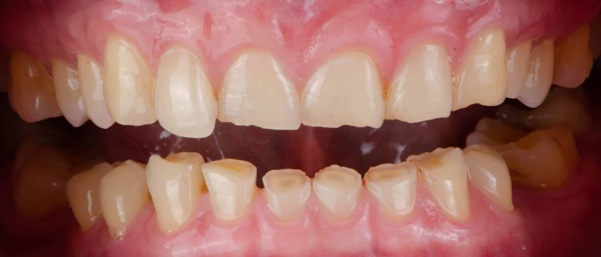The Link Between Parafunction and Root Canal Infections: A Comprehensive Guide

Dental parafunction is a term used to describe abnormal or excessive use of the jaw muscles which leads to clenching or grinding of the teeth; this in turn leads to wear, discomfort and various other issues. Parafunction has been linked to various dental diseases including root canal infections. This blog aims to shed light on this connection, the role of the specialist endodontist in Epsom in managing these issues, and the importance of prevention.
The Connection Between Parafunction and Root Canal Infections
Parafunction leads to long term tooth damage such as chipped or cracked teeth, and ultimately this leads to the failure of a filling, crown or a tooth itself. Parafunction can be classified as a chronic disease due to the fact that it is ever present yet only observed by either a dental professional or when a patient experiences pain.
The Journey from Teeth Grinding to Tooth Failure Teeth Grinding (Parafunction)
Teeth grinding, also known as bruxism, is a common parafunctional activity that involves excessive grinding or clenching of the teeth. This can occur during the day or at night, often linked to stress, anxiety, or sleep disorders. It is estimated that up to 25%-60% of the population may suffer from this condition. Although there is limited worldwide data to reach a concrete conclusion, most dentists note that parafunction is evident in almost all their patients who come for dental checkups. Thus, it is one of the most common and under diagnosed dental diseases present.
Stage 1: Enamel Wear
Grinding initially leads to wear of the enamel overlaying a tooth which is the hard, protective outer layer of the tooth. Over time, the excessive pressure and friction (attrition – tooth on tooth contact) from grinding can lead to the thinning and eventual wearing away of the enamel. This process exposes the underlying layer, the dentine.
Stage 2: Dentine Exposure
Once the enamel wears away, the dentine becomes exposed. Dentine is a softer layer beneath the enamel and contains microscopic collagen tubules that connect to the pulp (nerve) of the tooth. When dentine is exposed, it becomes more sensitive to stimuli such as temperature and pressure.
Stage 3: Dentine Hypersensitivity
With the exposure of dentine, dentine hypersensitivity arises. This condition is characterised by a short, sharp pain that arises from exposed dentine in response to stimuli such as heat, cold, touch, or pressure. The pain is typically sharp and brief, often described as ‘shock-like’ and settles when the affected teeth are no longer exposed to the stimuli.
Stage 4: Inflammation of the Pulpal Tissues
As the condition progresses, the constant pressure and friction can lead to inflammation of the pulpal tissues. This inflammation, known as a pulpitis, can cause pain and sensitivity. If left untreated, this inflammation can lead to more serious conditions such as pulp retraction (pulling back) and obliteration (closure of the nerve space).
Stage 5: Pulp Retraction and Obliteration
Pulp retraction refers to the shrinking or pulling back of the pulp (nerve) space due to inflammation. Pulp obliteration, also known as a calcific metamorphosis, is a condition where hard tissue is deposited along the internal walls of the root canal (nerve space), filling most of the pulp system and leaving it narrowed and restricted. This typically occurs in response to dental trauma but is now seen more then ever in patients who suffers from long term parafunction.
Stage 6: Irreversible Pulpitis
If the condition continues to progress without treatment, it can lead to an irreversible pulpitis. This is a more advanced stage of inflammation of the nerve of a tooth, and this is severe and irreversible. The classic presentation is acute dental sensitivity/pain and when this arises, the only options to relieve pain is either root canal treatment or removal of a tooth (if the tooth is not salvageable).
Dr Stefan Ciapryna, Specialist Endodontist
Dr Stefan Ciapryna is a United Kingdom registered specialist endodontist and Restorative dentist, and a leading figure in the field of dentistry. His work as an endodontist has culminated in him obtaining the dual Masters degrees’ of Member of Restorative Dentistry (MEndo) and Endodontist (MClinDent).
Dr Ciapryna is trained to diagnose bruxism and clenching, assess the extent of wear of a patient’s dentition, and if any root canal treatment work is needed, he is the specialist to see in Epsom to fix these issues.
Full Mouth Reconstruction by Dr Stefan Ciapryna
In addition to his endodontic expertise, Dr Ciapryna is also qualified to reconstruct a patient’s dentition, a process known as a full mouth reconstruction. This involves the rehabilitation of the entire mouth, including the teeth and bite. It is a highly specialised sequence of procedures that requires extensive training and expertise, both of which Dr Ciapryna possesses.
The Prevalence of Parafunction and Its Impact on Health and Wellbeing
Parafunction is now a common dental finding in the general population, both within the UK and globally. The prevalence of parafunction is increasing year by year, and this trend is concerning due to the potential impact on the health and wellbeing of patients.
Prevention: The Best Way to Avoid Needing Root Canal Treatment
Prevention is always better than cure, and this is especially true when it comes to dental health. As an experienced specialist endodontist in Epsom, Dr Ciapryna is able to advise and provide preventive measures to help patients avoid needing root canal treatment. These measures include the use of splints or nightguards, which prevent the impact of the effects of grinding and clenching and protects the muscles in the mouth and jaw.
Early detection and treatment are crucial in preventing the progression of these conditions. Regular dental check-ups and adopting good oral hygiene and study of the wear associated with a patient’s teeth is important to maintain stability of the teeth.
Conclusion
Uncontrolled grinding can lead to painful root canal treatments, but these are preventable. With the right preventive measures and the expertise of a specialist endodontist in Epsom like Dr Stefan Ciapryna, patients can ensure their dental health and wellbeing are taken care of and can avoid the consequences of parafunction.
